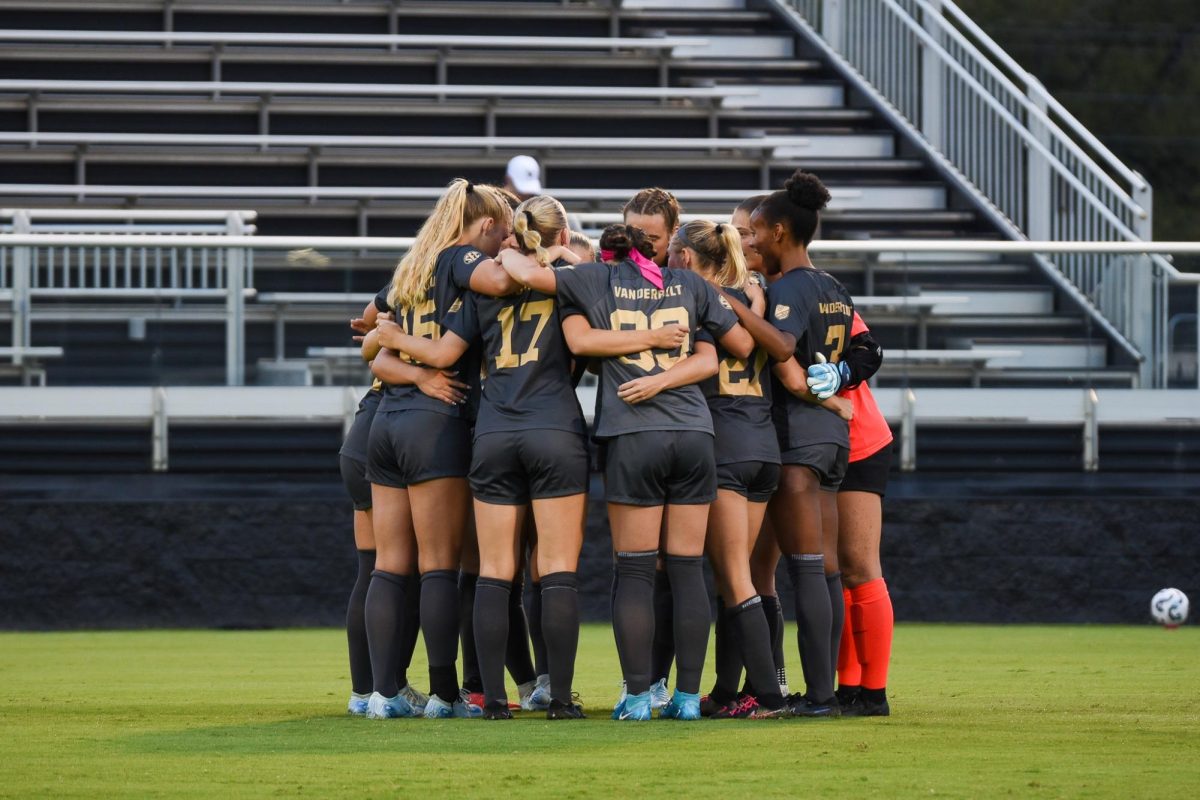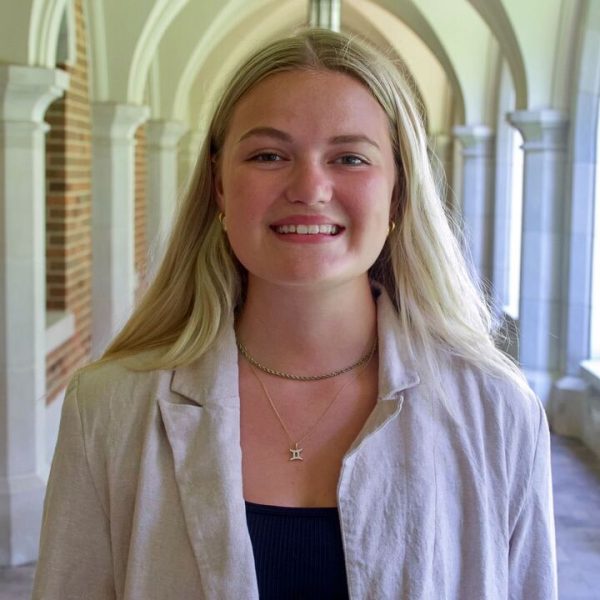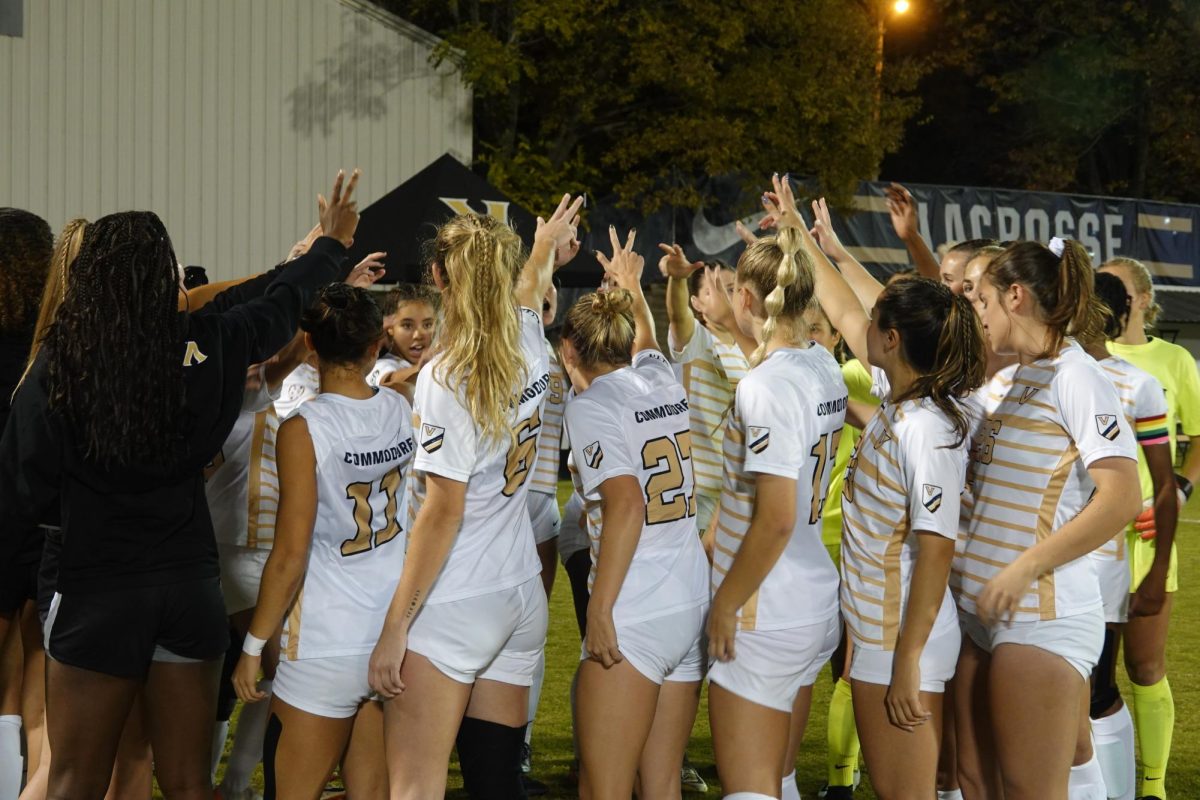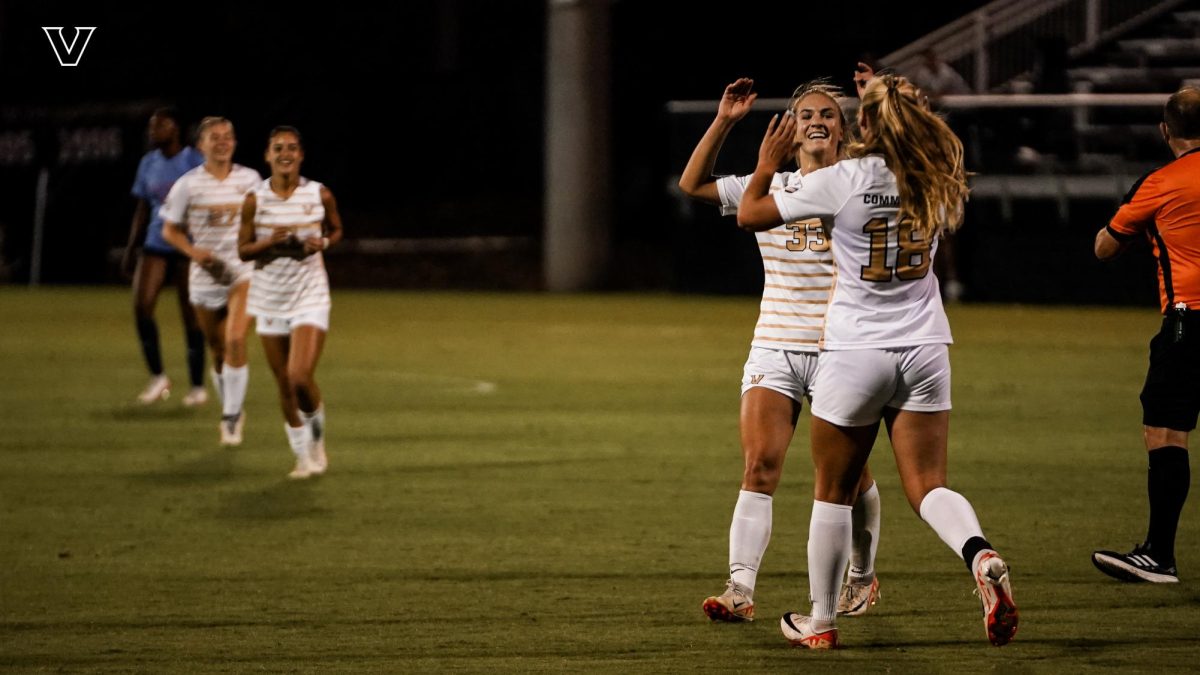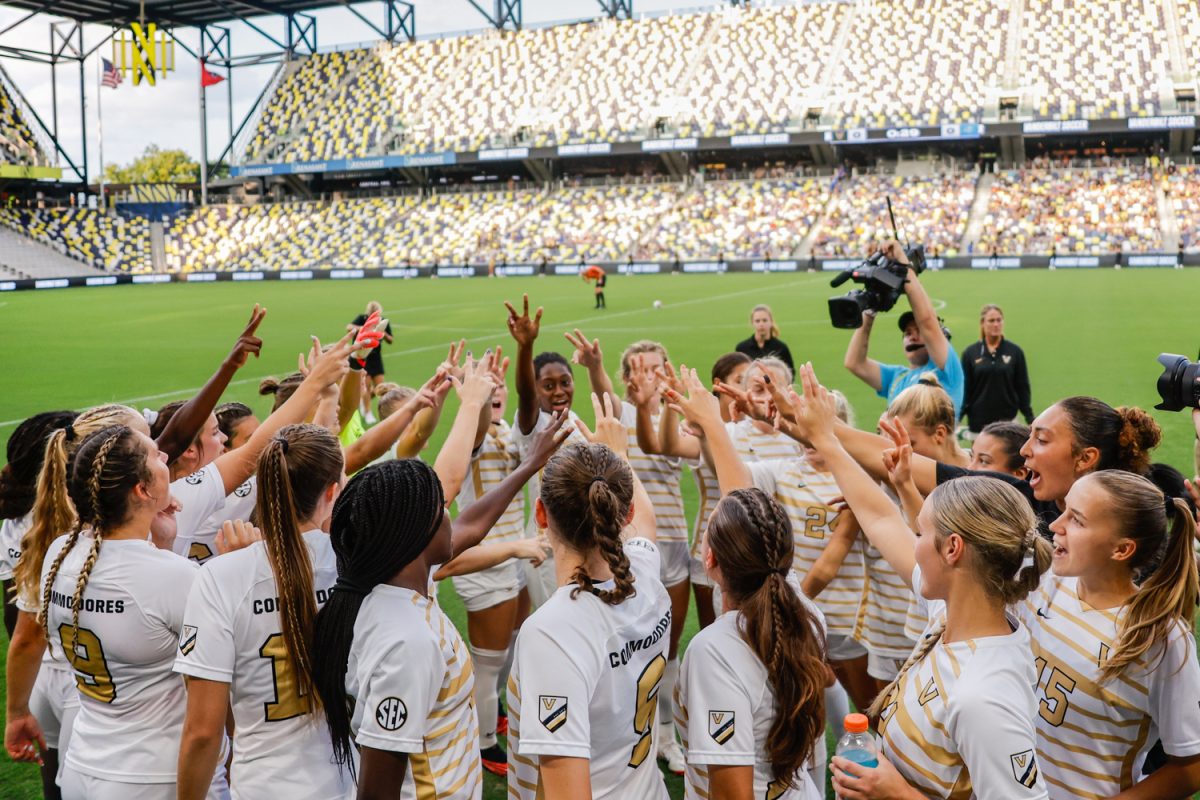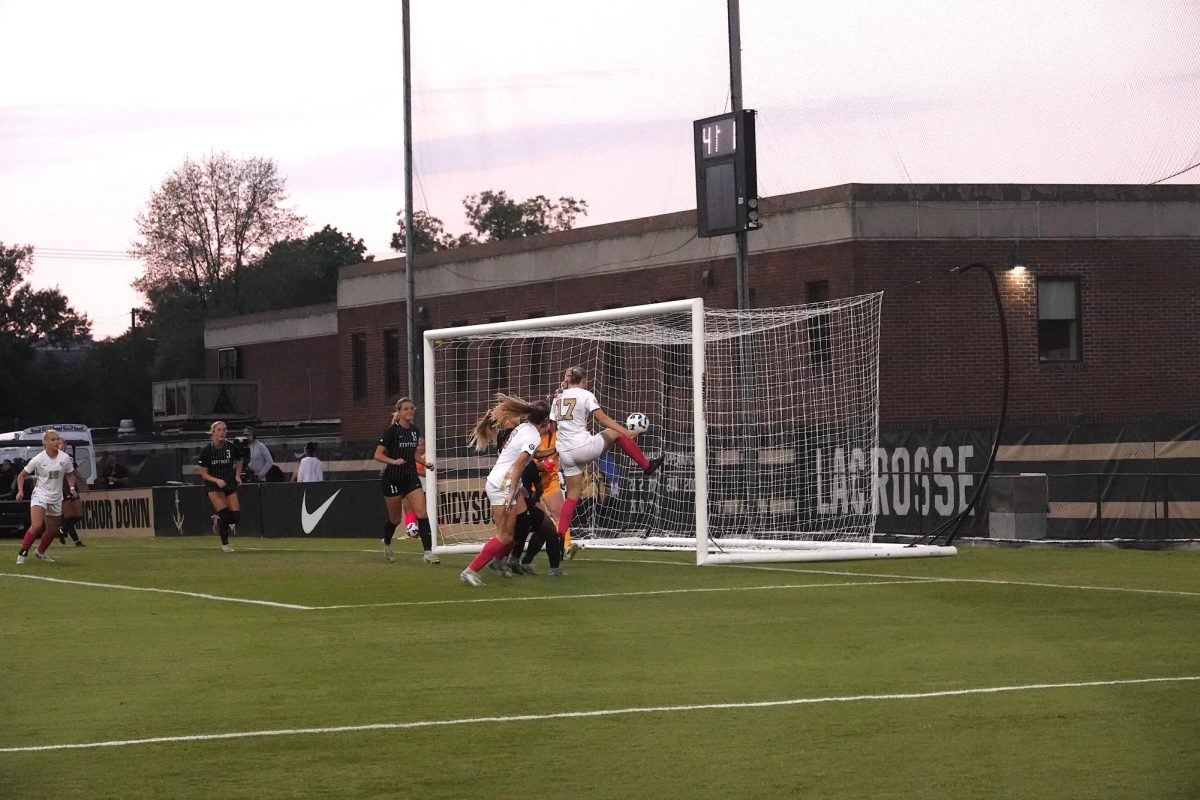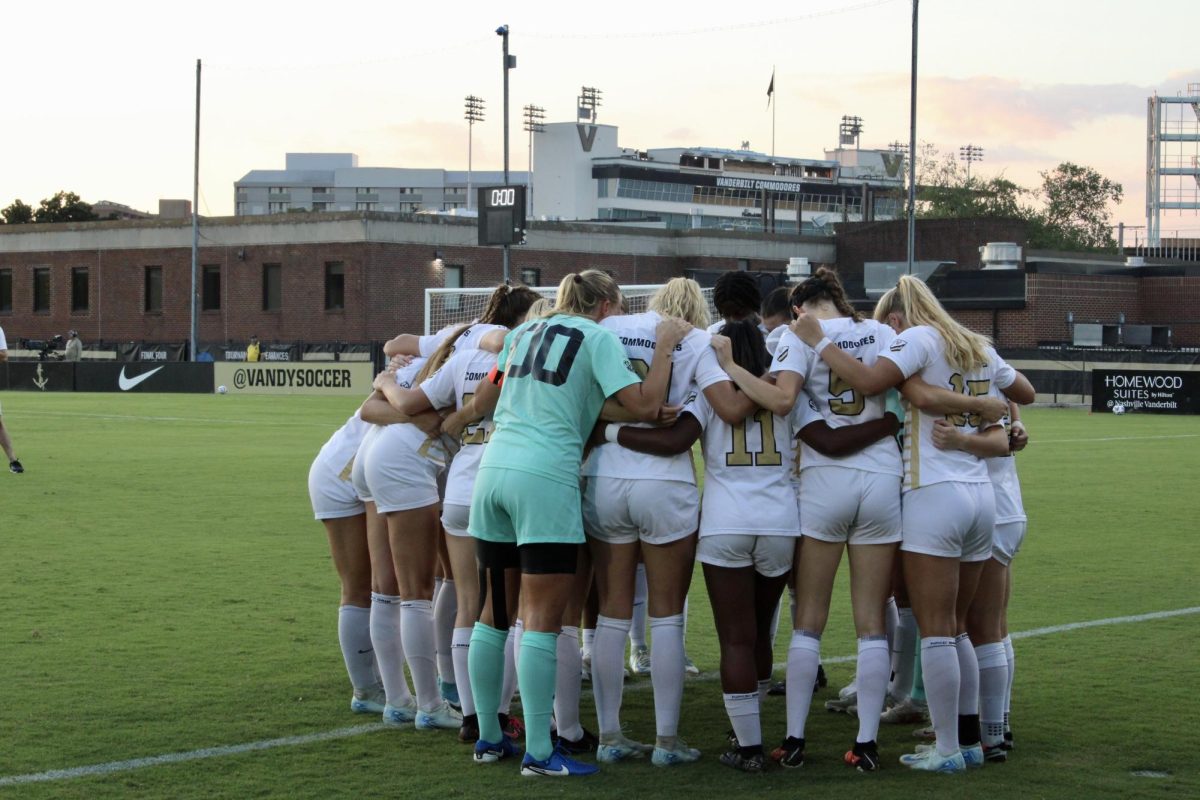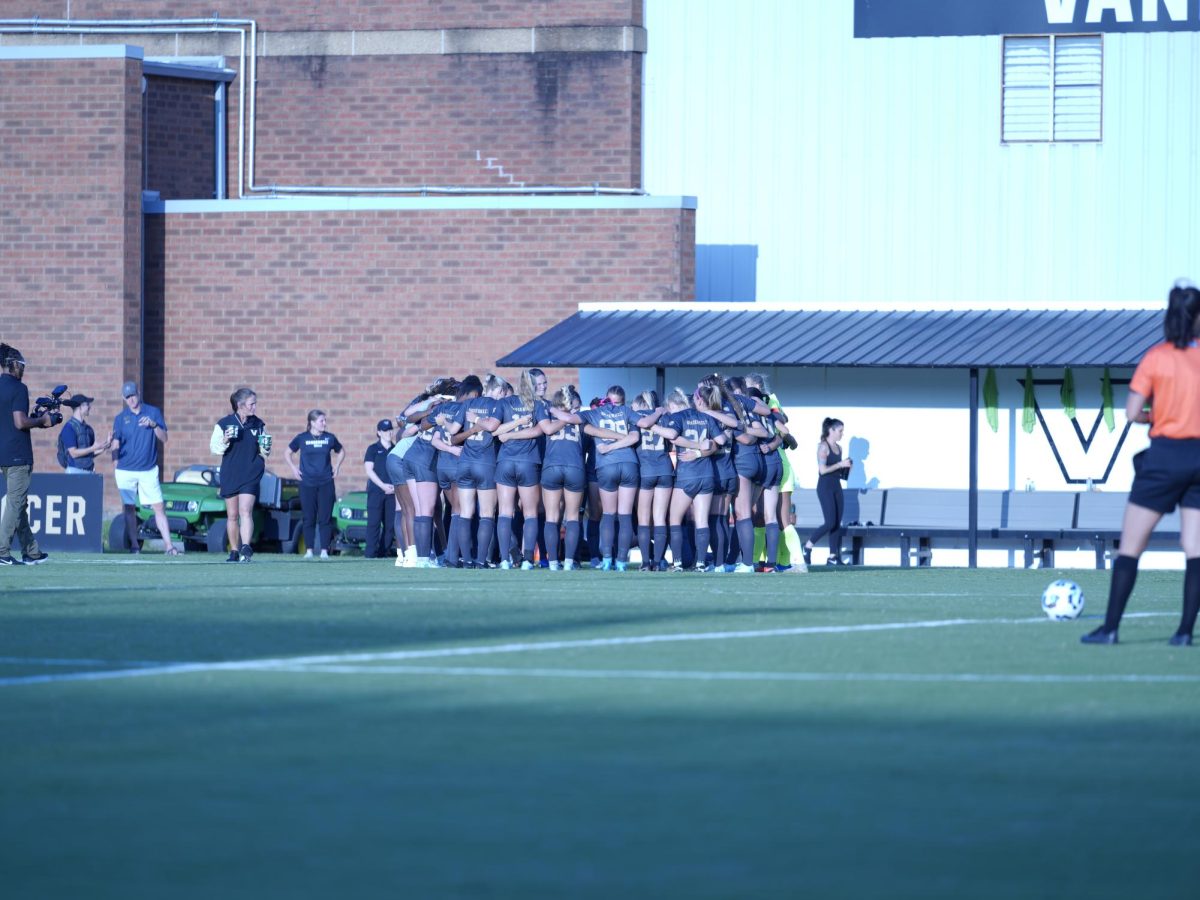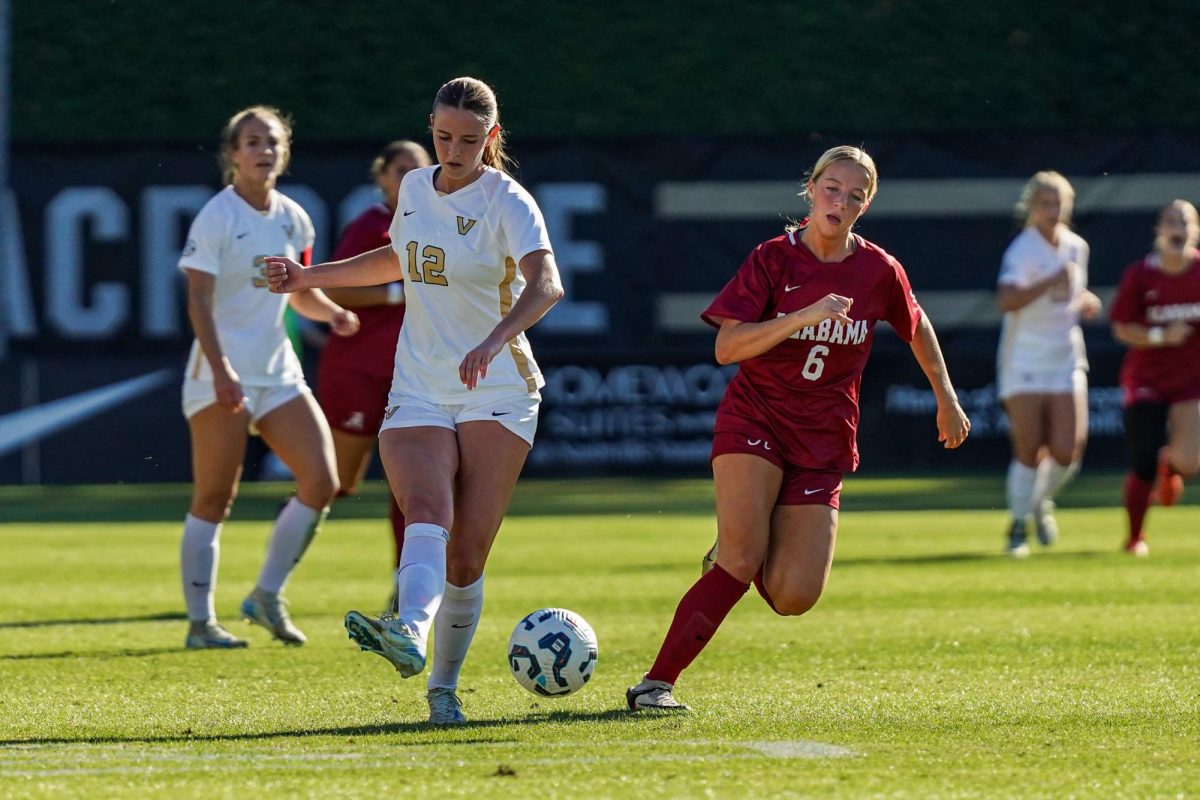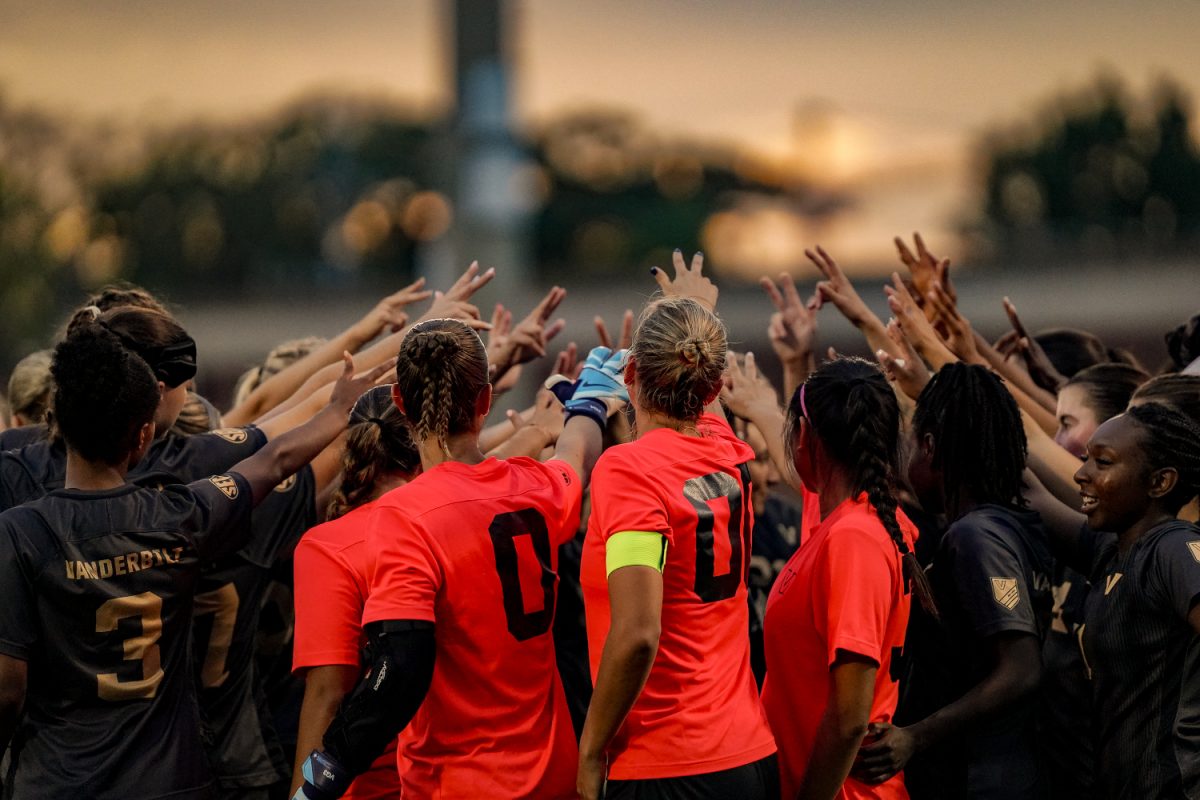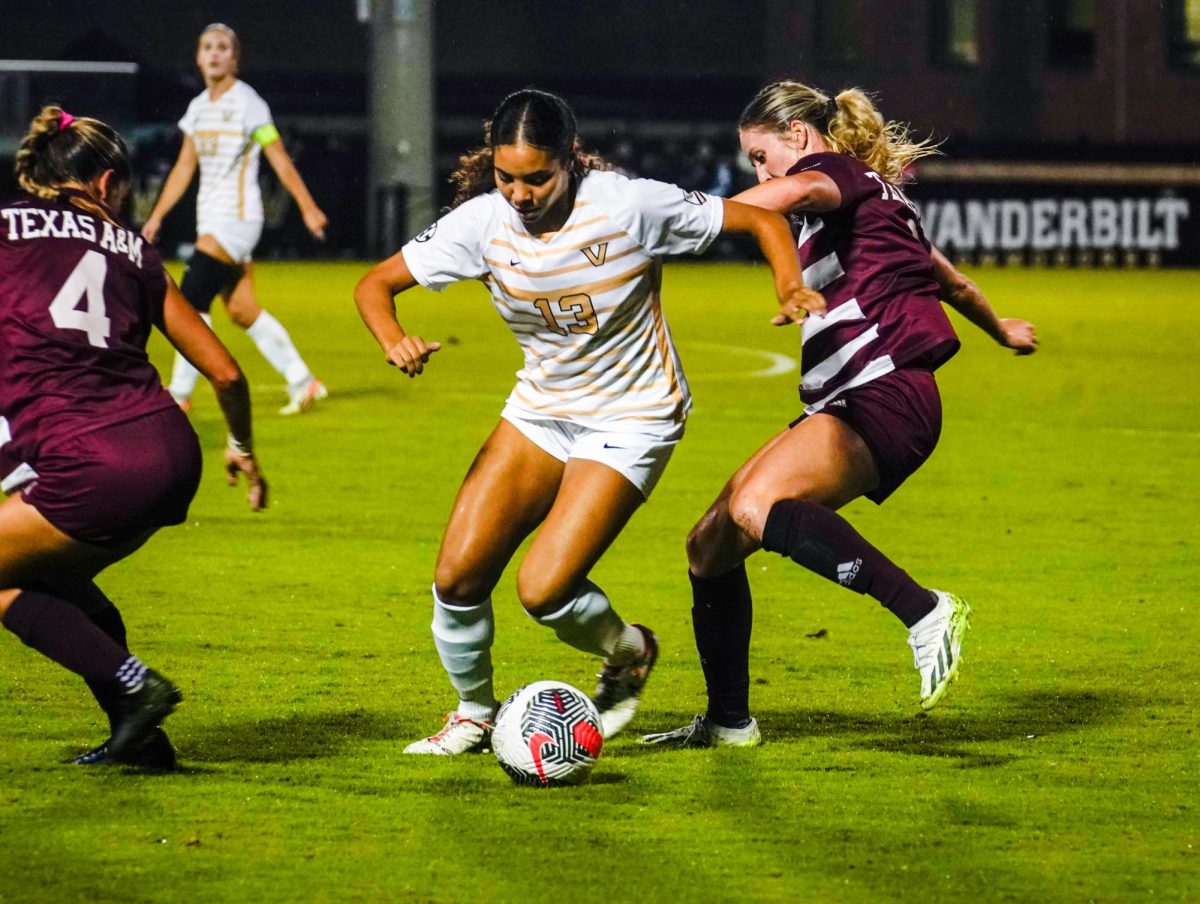Vanderbilt Soccer’s historic season ended on the evening of Nov. 24 in the third round of the NCAA Tournament. The Commodores fell to No. 4 Penn State 3-1 in Tallahassee, Florida. This elimination came just 48 hours after Vanderbilt stunned the No. 1 overall seed — and defending National Champion — Florida State in penalty kicks.
“I’m remarkably proud of this group,” head coach Darren Ambrose said in his Penn State postgame press conference. “I hope I’m fortunate to coach another team like this again.”
The third round is the furthest the Commodores have ever gone in the NCAA Tournament. This year’s success was a complete 180 from the 2023 season when the Black and Gold failed to earn an SEC Tournament bid for the first time in Ambrose’s tenure.
The 2024 chapter has closed for Vanderbilt, and inevitably, it will begin preparing for the 2025 season. However, this team deserves one last moment in the spotlight. Let’s look at what led to Vanderbilt Soccer’s success this season and what next season has in store for the ‘Dores.
Working through the middle
Vanderbilt struggled to find consistency in its offense due to turnover issues in 2023. Ambrose and Co. instituted a formation change in the offseason to address this. Vanderbilt ran a 3-4-3 formation in 2023, but this year, it transitioned primarily to a 2-5-3. The majority of Vanderbilt’s play, both offensive and defensive, was run through the five midfielders, as opposed to four.
While packing the midfield can quickly turn disastrous, this change was more conducive to Vanderbilt’s offense — it enhanced a style predicated on patience while taking advantage of gaps in the defense. Five midfielders created more short, guaranteed passing options, allowing the Commodores to dominate possession time and increase their offensive output.
Vanderbilt associate head coach Case Derkacz discussed why the coaching staff instituted the 2-5-3 scheme earlier this season.
“[Having five midfielders] allows us to handle dealing with injuries a little bit easier,” Dercacz said following a 3-0 win over Columbia on Aug. 30. “It’s a bit of a change of philosophy [but allows us] to get some more numbers to push forward [and] create a lot of good attacking moments.”
The rationale behind the scheme change worked. Vanderbilt increased its offensive output in every major category this season: goals rose by 41%, total shots by 33%, shots per game by 14% and shots on goal by 58%.
Vanderbilt’s midfield dominance did not go unnoticed as it received a pair of SEC accolades. Abi Brighton was named to the All-SEC Second Team for the second straight season and Hannah McLaughlin was a First Team All-SEC Selection.
Brighton, a center midfielder, was arguably the spine of the team. The South Carolina native maintained her composure and controlled the ball at an elite level all season. Most of Vanderbilt’s plays were facilitated through Brighton in the middle.
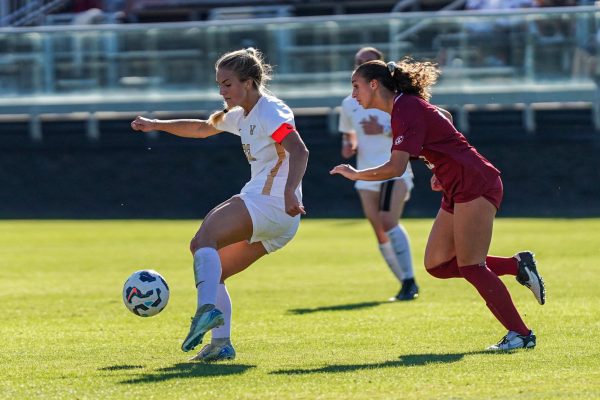
McLaughlin was also an immense asset in the midfield. Playing directly behind Brighton, she helped create offensive opportunities while also dropping to help side backs Jessica Hinton and Alex Wagner in Vanderbilt’s defensive half.
This season also saw the emergence of sophomore Courtney Jones as another gritty and talented facilitator in the midfield. Jones’ cannon of a leg made opponents hesitant to leave her unmarked, but she often made defenders pay for marking too close. Jones tallied 14 points (5 goals and 4 assists) on the season through her efforts.
The five-midfielder scheme also allowed the ball to get to Vanderbilt’s talented forwards more often. The trio of Caroline Betts, Sydney Watts and Rachel Deresky found their footing quickly in the season, and while they quieted down during the first half of SEC play (more on this later), they quickly rebounded in the second half. The tandem accounted for 60 of Vanderbilt’s 125 points on the season and 24 of its 45 goals.
A change in scheme — especially one that packs the middle with five midfielders — was no small task, but it transformed Vanderbilt’s offense.
Transitioning from draws to wins in SEC play
Vanderbilt’s season was marred with draws. While draws are certainly better than losses, they become undesirable if a team can’t capture wins as well; this is precisely what Vanderbilt experienced.
Vanderbilt found itself 0-3-2 through the first half of SEC play — despite going 5-0-2 in nonconference matches. The Commodores turned their record (and their season) around in convincing fashion by winning four of their last matchups in conference play. Two of those wins came on the road against Texas A&M and Florida.
Nonconference play had made it clear, though, that Ambrose’s offense could put up numbers. The issue also clearly wasn’t its defense, as Vanderbilt conceded just 1.4 goals per game in the first half of conference play.
What exactly helped the Commodores go from losses and draws to wins? Putting the ball in the back of the net. This might seem like an obvious explanation, but it’s the simple truth and the statistics prove it.
Vanderbilt’s offense sputtered, failing to find the same success it experienced in nonconference play against SEC foes. In the second half of conference play, however, the Commodores’ offense started scoring with the same prolificity it had in nonconference play — outsourcing opponents 10-2. The work-up-the-middle scheme finally started clicking against SEC opponents, and it paid dividends.
These wins catapulted Vanderbilt into the SEC tournament, but the Commodores exited early in a rematch against Alabama. The Commodores received a second chance to redeem themselves with an at-large bid to the NCAA Tournament. The newfound confidence that the end of conference play gave Vanderbilt was palpable in its wins over Lipscomb and FSU in the NCAA Tournament.
The midway point in SEC play, when draws transitioned to wins, marked an important milestone in this season’s timeline for Vanderbilt.
What will Vanderbilt look like in 2025?
The biggest question looming over Vanderbilt’s Soccer team is now future-facing: What will happen next year? The program is facing key departures that will leave holes in its starting lineup.
Brighton will be officially out of eligibility, and her steadfast commitment to unselfishness will leave a gaping hole in the midfield. The good news is that either Jones or McLaughlin should be well prepared to step into the position.
Between the goalposts, Kate Devine (graduate) is out of eligibility, and Vanderbilt may also lose Sara Wojdelko (senior), meaning junior Alexa Gianoplus may be the only goalie left on the roster. Gianoplus has only played in one game during her collegiate career — against ETSU as a first-year. Ambrose and Co. did not recruit a goalkeeper in the class of 2025, according to Top Drawer Soccer. This means that either Wojdelko will stay, Gianoplus will finally hear her name called or the Commodore coaching staff will go after a goalkeeper in the transfer portal.
On the offensive side, Deresky, now a senior, will likely depart from the program, along with Betts. Although Betts is only listed as a junior on the roster, Ambrose confirmed on Sunday that she will graduate at the end of this year and will no longer be with the program.
“[Betts] is an unsung hero [for this team],” Ambrose said. “Brighton, Wojdelko, McLaughlin and a lot of [our] players have got strong resumes and reputations, and Caroline has been one of the most consistent performers for her three years.”
Betts and Deresky accounted for 12 goals and 11 assists together this season. Filling their roles will be a formidable challenge for Ambrose, but it can be done.
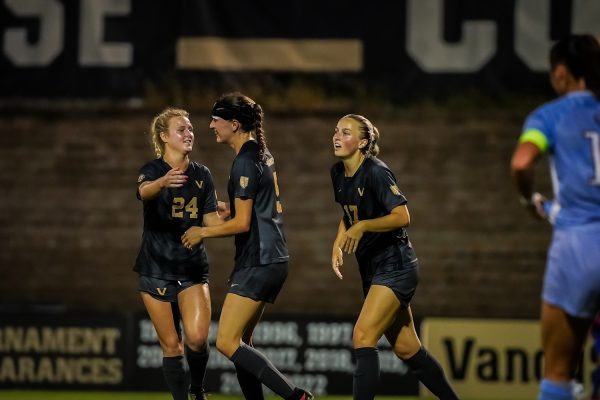
Ella Eggleston was relatively quiet this year after an exceptional first-year campaign as she battled injuries off and on. A fully healthy Eggleston would impact Vanderbilt’s offense immensely and likely replace the production lost from one of Betts or Deresky. Watts is also poised to pick up where she left off and have another dominant season. Another option on the front line is junior transfer Vivian Akyirem, who scored 20 goals in her two years at Northeastern before coming to West End.
Vandrbilt’s starting defense will see a complete change, with graduate students Hinton and Wagner now out of eligibility. SEC All-Freshman selection Mary Beth McLaughlin should be poised to step into one of the open defensive positions.
Ambrose knows that building a team that competes for a national championship takes time and that his team’s appearance in the third round this year will help.
“It takes time to build up to [winning championships],” Ambrose said after the Penn State loss. “You don’t just go from last in the SEC to National Champion necessarily in 10 years, but we’re on that path. I think [the] long-term future of [both] our program and Vanderbilt Athletics is on the right trajectory. It’s my responsibility now to keep the ship sailing in that direction.”
As another chapter closes in Vanderbilt Soccer’s story, the 2024 season will be bookmarked for the foreseeable future.

